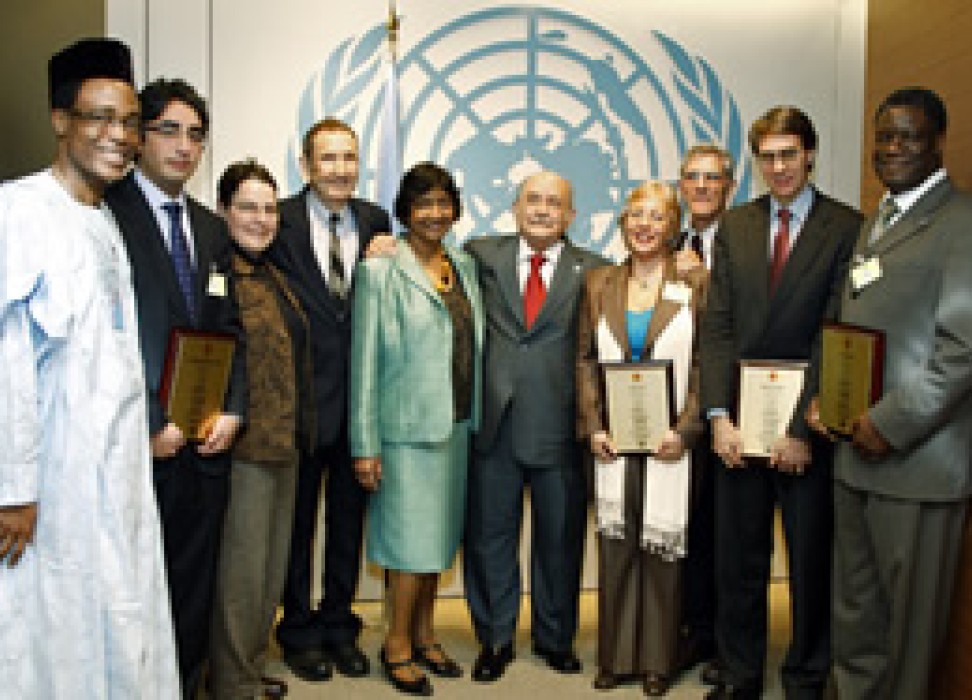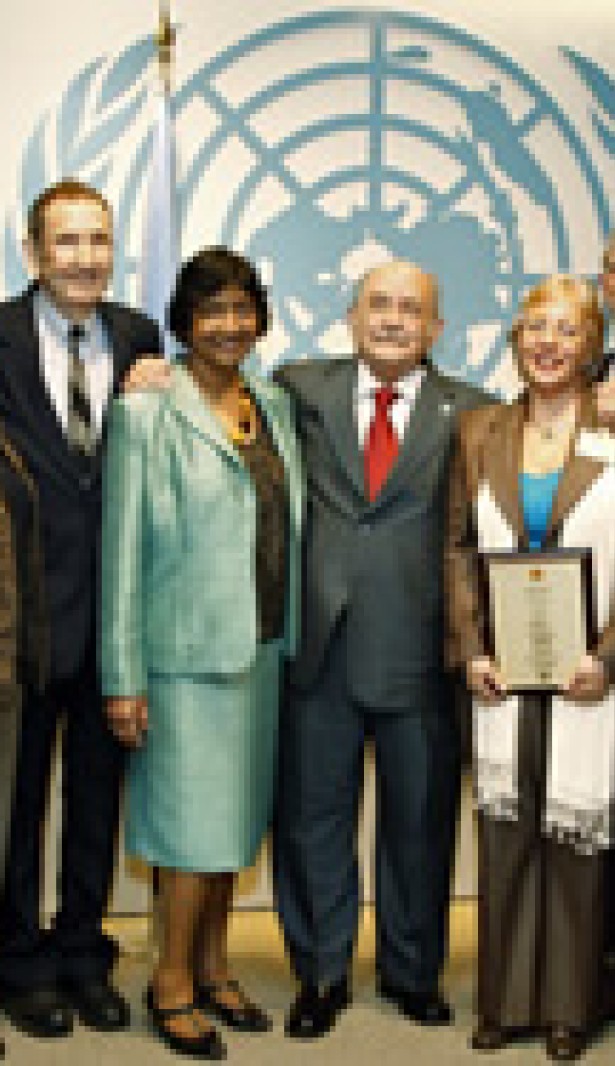UN Human Rights Prize 2013
03 May 2013

The Office of the UN High Commissioner for Human Rights announced on 30 April that it is seeking nominations for the 2013 United Nations Prize in the Field of Human Rights.
The prize, which is awarded to individuals or organizations every five years for “outstanding achievements in the field of human rights,” was first given out 45 years ago on the 20th anniversary of the adoption of the Universal Declaration of Human Rights.
The prize is given to a group of five or more winners. Some recipients of the award, such as Nelson Mandela and Jimmy Carter are household names all over the world. Others, such as the Egyptian writer Taha Hussein, Prince Sadruddin Aga Khan, former UN Secretary General U Thant of Myanmar, former UN High Commissioner for Human Rights Louise Arbour and Anna Sabatova of the Czech Republic, a founding member of ‘Charter 77’, are extremely well known in their home regions or in human rights or humanitarian circles.
Eleanor Roosevelt, who played a key role in creating the Universal Declaration of Human Rights, and the legendary US civil rights leader Martin Luther King were honoured posthumously, as was UN High Commissioner for Human Rights Sergio Vieira de Mello of Brazil, who received the award four months after he was killed along with 21 other people in the 2003 Canal Hotel bombing in Baghdad.
Organizations that have won the prize include Amnesty International, the International Committee of the Red Cross, and the Mano River Women’s Peace Network in West Africa.
“The Human Rights Prize sends a clear message to those who stand for human rights and freedoms that the international community is grateful for and supports their tireless efforts to promote the Universal Declaration of Human Rights,” said UN Human Rights chief Navi Pillay commenting on the 2008 award winners.
The prize was established by the General Assembly in 1966, and first awarded on 10 December 1968.
An important feature of the Prize is that nominations can be received from a broad variety of sources: “Member States, specialized agencies and non-governmental organizations in consultative status and from other appropriate sources.” Nomination forms should be sent to the Office of the High Commissioner for Human Rights. The committee that selects the winners is made up of the Presidents of the General Assembly, the Economic and Social Council and the Human Rights Council, and the Chairs of the Human Rights Council Advisory Committee and of the Commission on the Status of Women.
The closing date for the receipt of nominations is 5 July 2013, and the prizes will be awarded at the General Assembly in New York on 10 December 2013 – the 65th anniversary of the adoption of the Universal Declaration of Human Rights.
More detailed instructions about eligibility and the procedures for nominations can be found at the UN Human Rights Prize web page.
This year’s edition of the UN Human Rights Prize coincides with the 20th anniversary of the Vienna Declaration and Programme of Action, which was adopted at the 1993 World Conference on Human Rights and created the position of the United Nations High Commissioner for Human Rights.
Photo of 2008 UN Human Rights Award ceremonyMiguel d'Escoto Brockmann (fifth from right), President of the sixty-third session of the General Assembly; Navi Pillay (fifth from left), United Nations High Commissioner for Human Rights; and Martin Uhomoibhi (left), Permanent Representative of Nigeria to the United Nations Office at Geneva and President of the Human Rights Council, pose for a group photog with the recipients of the 2008 United Nations Prize in the Field of Human Rights. From left to right: Bilawal Bhutto Zardari, on behalf of Mohtarma Benazir Bhutto, former Prime Minister of Pakistan; Sister Joan Burke; Ramsey Clark, former Attorney-General of the United States of America; Caroline Gomes, Co-founder and Executive Director of Jamaicans for Justice; David Stang, on behalf of Sister Dorothy Stang; Kenneth Roth, on behalf of Human Rights Watch and Louise Arbour, former United Nations High Commissioner for Human Rights; and Denis Mukwege, Director and Chief surgeon at the Panzi Hospital in Bukavu in the Democratic Republic of the Congo.
3 May 2013

